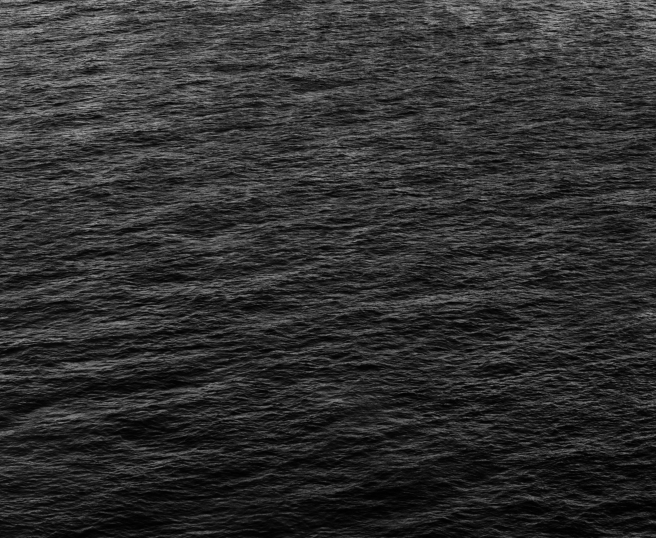The second law of thermodynamics states that entropy will only ever increase.
As sure as time moves forward, things will break down.

This morning, after warming up a bowl of rice, I sent a few grains flying with only a slight mis-movement on my part. Suddenly I had a problem. The small, light pieces of rice scattered with a surprising amount of force, as if they were finally set free from prison. I looked at the rice on the floor and couldn’t help but think of entropy.
Entropy increase is a physical law of the universe– things in an ordered state are only so temporarily. They will wait with the patience of oceans to return again to their most basic and free form. It took a relatively long time to go and find each piece of rice and clean them up from the floor, compared to how easily they were scattered.
This is life. It’s all effort to uphold order against inevitable breakdown. At best, mankind maintains periods of rebuilding, of cleaning up the mess. But a united front of cleaning up feels more rare every day.
I worry about the idea that you stop learning after going to school. That you just go into a mode where despite all of the new things you experience and undergo, you stop seeking out and experimenting with ideas and stop consciously examining beliefs.
There are important things to learn that, at least for now, lie fundamentally outside of the realm of structured, institutional education.
One of these things is understanding life and the world in all of it’s mess. This is not knowledge that you can take and then go label as right and wrong, as A, B, C, D, or even E. It is knowledge that will clear your head.
Drowning in chaos
The tide is too high. We can’t walk to the tall rock sticking out in the water like you normally can, by creeping across the long, bridge-like stones that jut up high from the seafloor. We have to swim out to it and climb. The water is rough and choppy, making the usual place to climb up from inaccessible. We’ll have to swim, and even further. With our shoes on, as well.

About halfway to the accessible slope of the rock I remember losing my strength. Suddenly, my shoes and the water they absorbed were incredibly heavy. It took all my energy to just keep myself afloat. I don’t know why I remember that so clearly, my shoes being heavy. They felt like a person, forcefully dragging me down. Later, I would learn that I had also been trying to swim against a strong undercurrent.
One of my friends up ahead (I was furthest back) noticed me stop, noticed something wrong, and then swam back to me. Out of instinct, as soon as he was close enough, I grabbed onto him and became deadweight, started to drag him down. Caught by surprise, we both thrashed a bit until he started to lose his strength too. He slipped away, circling me and trying to calm me down and instruct me on how to stay afloat. My other friends, too far up ahead to notice, swam on.
All I remember during this time was water in my nose and primitive fear. It was a type of thinking that was completely physical– no abstract thoughts, only my arms and legs and lungs problem-solving. A boat came and lifeguards on it dragged me aboard, likely saving my life.
I think about that moment and how the ocean was. The ocean, especially. A pure physical force, indifferent, inevitably more powerful than I. It was pure chaos.
When we contemplate the natural chaos and disorder in life, it’s an instinctual reaction to try and fight it by reaching to the notions of agency and free will, just like I grabbed on to my friend in the water. But just as my friend was unable to calm me down and bring me to safety, freewill sometimes falls short of overcoming the wild circumstances in life. The only thing to do then is to adapt, to reconfigure your will until you can avoid succumbing to the chaos (in the case of the water, the boat came along).
I tell this story also because I think the scale of forces is closer to correct– when talking about life, we’ve mistakenly hyperfocused our conversations on what we can do, solve, address, defeat, conquer. Barely dedicating a footnote to chaos. As if we lived in a vacuum that only occasionally malfunctioned or sucked up a coin. But really, our free will is about as big as a person or two, give or take a boat and a few more people. Chaos, breakdown, entropy– as big as the ocean.
Emerson wrote “There is less intention in history than we ascribe to it.” If you live your life thinking everything happens only because people plan it so, or thinking that the way things are (Y) can be explained because of (X), then you are asleep.
There is good, ubiquitous wisdom out there instructing us to adapt and control ourselves in the midst of chaos. But there are few calls to simply meditate upon that chaos. It’s useful to think about the chaos. It brings about important perspective shifts: from “why me?” to “what now?”; from force to adaptation; from certainty to observation; from fear to awareness; from suffering to reality.
